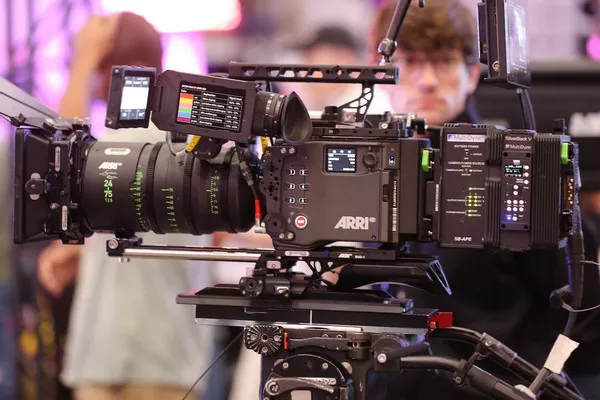Music is a universal language that transcends cultural boundaries and speaks directly to the human soul. It has the remarkable ability to evoke emotions, trigger memories, and even alter one’s mood. But how does music affect your brain? This question has intrigued scientists, psychologists, and music enthusiasts alike for centuries. In this article, we will delve into the fascinating world of music and explore the intricate ways in which it influences and shapes our brains.
The Neurochemistry of Music: How Does It Affect Your Brain?
The process of how music affects your brain begins with the release of neurochemicals. When you listen to music that resonates with you, your brain responds by releasing dopamine, a neurotransmitter associated with pleasure and reward. This feel-good chemical is also released during activities like eating, exercise, and even falling in love. Music’s power to stimulate the brain’s reward center is a significant reason why it can be such a pleasurable and emotionally impactful experience.
Beyond dopamine, music also affects the levels of other neurotransmitters and hormones in your brain. For example, listening to slow, soothing music can lower the stress hormone cortisol, promoting relaxation. On the other hand, upbeat and energetic music can increase the release of adrenaline, leading to heightened alertness and motivation. These neurochemical responses demonstrate the profound influence music has on your brain’s chemistry.
The Emotional Rollercoaster: How Music Shapes Your Emotions
One of the most compelling ways in which music affects your brain is through its ability to modulate emotions. Music can evoke a wide range of emotional responses, from joy and excitement to sadness and nostalgia. This emotional connection to music is deeply rooted in the brain’s limbic system, which is responsible for processing emotions.
When you hear a piece of music, your brain quickly assesses its emotional tone and activates corresponding neural pathways. For example, a melancholic melody may activate regions associated with sadness, while an energetic tune can trigger feelings of happiness and excitement. This emotional synchronization between music and the brain is why music is often used to enhance the emotional impact of movies, advertisements, and other forms of media.
Moreover, music’s ability to affect your brain’s emotional processing goes beyond mere mood enhancement. For individuals with mood disorders such as depression or anxiety, music therapy has been shown to be a valuable complementary treatment. Research has indicated that carefully selected music can help regulate emotions, reduce anxiety levels, and even alleviate symptoms of depression. This therapeutic potential highlights music’s unique capacity to influence and reshape emotional experiences in the brain.
The Memory Maestro: Music’s Role in Memory Formation
Another captivating aspect of how music affects your brain is its profound impact on memory. Music has an uncanny ability to trigger vivid memories and transport us back in time. This phenomenon is often referred to as the “music-evoked autobiographical memory.”
When you hear a song associated with a specific event or period in your life, your brain activates a network of regions responsible for memory retrieval. This can include the hippocampus, a crucial structure for the formation of long-term memories, and the prefrontal cortex, which helps organize and store memories. As a result, listening to music can rekindle forgotten memories and create a powerful sense of nostalgia.
Furthermore, music can serve as a mnemonic device, aiding in the retention of information. Many people find it easier to remember facts or concepts when they are set to a melody or rhythm. This phenomenon is often used in educational settings, where teachers employ songs and rhymes to help students memorize complex material. The ability of music to enhance memory recall and retention underscores its significant impact on cognitive processes in the brain.
The Language of Healing: Music Therapy and the Brain
Music’s therapeutic potential extends beyond its role in memory and emotions. Music therapy is a well-established discipline that leverages the power of music to address a wide range of physical and psychological conditions. The practice involves a trained music therapist working with individuals to achieve specific therapeutic goals.
In the context of mental health, music therapy can affect your brain in numerous ways. It can promote relaxation and stress reduction by altering brainwave patterns. For example, slow-tempo music can lead to increased production of alpha brainwaves associated with relaxation and meditation. Conversely, rhythmic and stimulating music can encourage the synchronization of brainwave activity, leading to improved focus and attention.
In cases of neurological disorders such as Parkinson’s disease and stroke, music therapy can have remarkable effects. Studies have shown that rhythmic auditory stimulation, a technique that uses music with a regular beat, can help individuals with motor impairments regain movement and coordination. This approach taps into the brain’s ability to synchronize motor responses with auditory stimuli, facilitating the recovery process.
In rehabilitation and recovery from traumatic brain injuries, music therapy plays a vital role. It can assist in regaining speech and language skills, as well as improving cognitive function. The rhythmic and melodic elements of music engage various brain regions, promoting neuroplasticity, which is the brain’s ability to reorganize and adapt following injury.
The Brain’s Musical Plasticity: How Musicians’ Brains Differ
Notably, the brains of individuals who play musical instruments are distinctively different from those who do not. This phenomenon, known as musical plasticity, reflects the brain’s remarkable ability to adapt and rewire itself in response to music training.
Musicians’ brains exhibit enhanced connectivity between regions responsible for auditory processing, motor coordination, and executive functions. The continuous practice and refinement of musical skills lead to the development of a finely tuned neural network. This network not only allows musicians to play their instruments with precision but also provides cognitive advantages in other domains.
For example, musicians often demonstrate improved memory, attention, and problem-solving skills compared to non-musicians. This heightened cognitive ability can be attributed to the demanding nature of music training, which requires simultaneous processing of multiple elements such as melody, rhythm, and harmony. As a result, music education can profoundly affect your brain’s cognitive functions and enhance your overall cognitive reserve.
Additionally, learning to play a musical instrument engages the brain’s plasticity, facilitating neurodevelopment in children. Numerous studies have shown that music education can have a positive impact on children’s academic performance, particularly in math and language. These benefits underscore the potential of music to stimulate intellectual growth and cognitive development in young minds.
Music and Pain Perception: The Brain’s Natural Analgesic
Music’s ability to affect your brain extends to the realm of pain perception. Music therapy has been used as a complementary approach to pain management in various clinical settings, including hospitals and palliative care facilities.
When you listen to music you enjoy, your brain’s attention is redirected away from pain signals, leading to a perceived reduction in pain intensity. This distraction mechanism is closely linked to the brain’s ability to process multiple sensory inputs simultaneously. By engaging with music, you create a cognitive diversion that competes with the brain’s awareness of pain, effectively diminishing its impact.
Furthermore, music can stimulate the release of endorphins, the body’s natural painkillers, and reduce the perception of pain. This dual-action approach makes music an effective tool in managing both acute and chronic pain conditions.
In surgical settings, the use of music has been shown to reduce anxiety levels and the need for anesthesia during minor procedures. By calming the patient and reducing anxiety, music can affect your brain’s perception of pain and discomfort, making medical interventions more tolerable.
Musical Preferences and Personality: Insights from Brain Imaging
Recent advances in neuroimaging techniques have provided fascinating insights into how music affects your brain, particularly concerning musical preferences and personality traits. Researchers have used functional magnetic resonance imaging (fMRI) to examine the neural responses associated with different genres of music.
One study, for instance, found that individuals who preferred classical music exhibited increased activity in the brain’s prefrontal cortex, a region linked to higher-order cognitive functions such as decision-making and problem-solving. In contrast, fans of jazz showed heightened connectivity between brain regions associated with self-expression and emotional regulation.
These findings suggest that musical preferences may reflect certain personality traits and cognitive predispositions. Moreover, they highlight the individualized nature of how music affects your brain, as the brain’s response to music is influenced by a person’s unique tastes and experiences.
Music as a Therapeutic Bridge: Communication in Neurological Disorders
In cases of severe neurological disorders like Alzheimer’s disease and dementia, music can serve as a powerful means of communication and emotional expression. These conditions often lead to a decline in verbal communication skills and cognitive abilities, making it challenging for individuals to convey their thoughts and emotions.
However, music has the remarkable ability to transcend these limitations. When familiar songs from a person’s past are played, it can trigger memories and emotions, enabling them to connect with their own history and emotions. This therapeutic use of music, known as reminiscence therapy, can help individuals with dementia maintain a sense of identity and improve their overall well-being.
Furthermore, music therapy has shown promising results in improving the quality of life for individuals with dementia. It can reduce agitation and aggression, enhance mood, and promote social interaction. The brain’s response to music in these cases demonstrates how music serves as a bridge to connect with individuals who are otherwise difficult to reach due to cognitive decline.
The Future of Music and Brain Research: Uncharted Territories
While we have made significant strides in understanding how music affects your brain, there is still much to discover. Ongoing research continues to unveil new dimensions of this intricate relationship. Emerging fields like neuromusicology and neuroaesthetics delve into the neural mechanisms underlying music perception, cognition, and creativity.
One exciting avenue of research explores the use of music as a tool for enhancing cognitive function and creativity. Can specific types of music or musical training improve problem-solving abilities or innovation? Understanding the brain’s response to music in these contexts could have profound implications for education, therapy, and cognitive enhancement.
Additionally, the integration of technology and neuroscience promises to open up new possibilities in the field of music and the brain. Brain-computer interfaces (BCIs) and neurofeedback systems hold the potential to create personalized musical experiences that adapt in real time based on a person’s neural responses. This level of customization could revolutionize how we use music for therapeutic purposes and entertainment.
Conclusion: The Harmonious Connection Between Music and the Brain
In the intricate symphony of the brain, music plays a profound and multi-faceted role. From the release of neurochemicals that induce pleasure and reward to the modulation of emotions and memories, music weaves its influence throughout the neural landscape. It acts as a bridge to connect with individuals facing neurological challenges, a means of enhancing cognitive function, and a universal language that transcends cultural boundaries.
As we continue to unravel the mysteries of how music affects your brain, we gain deeper insights into the human experience itself. Music is not merely a form of entertainment; it is a powerful force that shapes our minds, emotions, and identities. In the future, as we harness this knowledge, we may unlock new dimensions of human potential and well-being through the harmonious relationship between music and the brain.


























